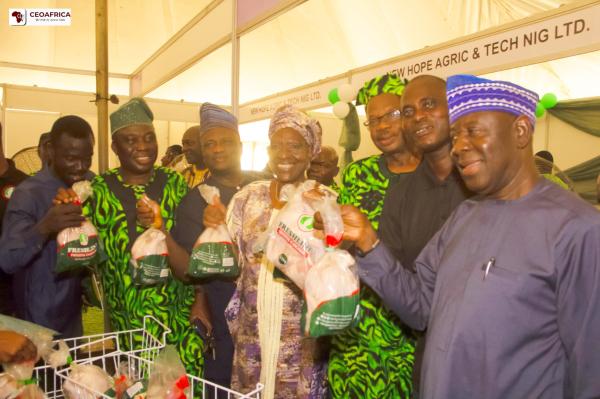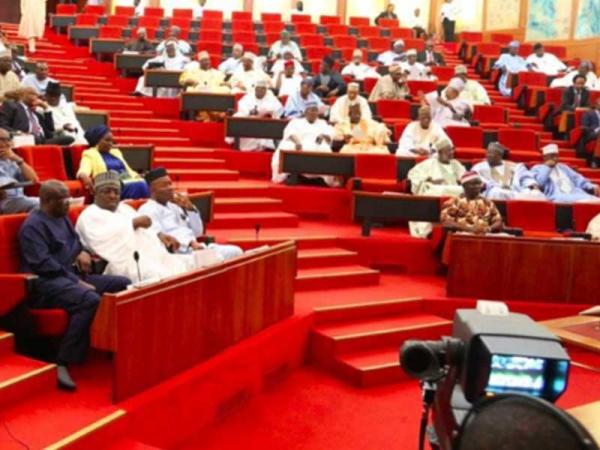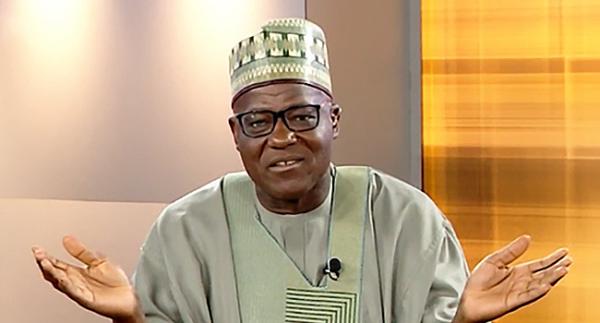
The Poultry Association of Nigeria (PAN), Oyo State Branch, successfully hosted its much-anticipated 2025 Mega Poultry Workshop on Tuesday, March 25, 2025 at Poultry Haven in Egbeda, Ibadan. With the theme "Strengthening Poultry Farming Through Cooperative Synergy & Strategic Investments," the event attracted dignitaries, industry stakeholders, exhibitors and poultry farmers, all eager to discuss the future of poultry farming in Nigeria.
Attendees included Barr. Olasunkanmi Olaleye, the Oyo State Commissioner for Agriculture & Rural Development, who was represented by Dr. (Mrs.) Azeez; Mr. Ayooluwa Okediji, Founder and CEO of AgroinfoTech Africa and a prominent figure in agricultural development; Prof. E. F. Ogunnaike, the Grand Patron of PAN Oyo State and Chairman of Fol-Hope Nigeria Ltd, who served as the Chief Host; and Elder Omidokun Oyekunle, PAN Oyo State Chairman and event host. Other notable guests included Rev. Gideon Oluleye, PAN Chairman SouthWest, as well as the Chairmen of the Local Organizing Committee, Dr. Adigun Olufemi O. and Mr. Olayinka Oluwatoyin.
In his opening remarks, Elder Omidokun Oyekunle emphasized the vital role of the poultry industry in contributing to food security, employment, and national economic growth. He stated, “The poultry industry is a key contributor to food security and national economic growth, but we cannot overcome these challenges in isolation. Now is the time for us to move beyond individual struggles and embrace the power of cooperation.”
He outlined a vision for unifying farmers, processors, marketers, and stakeholders, advocating for pooled resources for bulk purchasing of feeds and inputs, the creation of egg and broiler aggregation centers, shared technical knowledge, and enhanced bargaining power. Furthermore, he stressed the importance of strategic investments, highlighting areas such as feed security, value addition, digitalization, and financial partnerships that can drive growth and efficiency in the sector.
Mr. Ayooluwa Okediji, delivering the keynote address, brought attention to the urgent need for sustainable practices in poultry farming. He cited the impressive statistics of the Nigerian poultry sector, stating, “In 2023/2024, the Nigerian poultry population exceeds 200 million birds, with an annual egg production valued at over 650 billion naira, approximately equivalent to 10 billion eggs. Poultry meat accounts for 30% of total meat consumption, making it a crucial source of affordable protein in Nigeria.”
Okediji further underscored Oyo State's significance as the poultry powerhouse in Nigeria, contributing 11% to the nation's total poultry production and hosting the largest concentration of breeding farms and hatcheries. Despite these achievements, he acknowledged that many farms struggle with challenges such as high production costs, market instability, and limited access to sustainable financing. “To strengthen poultry farming and build the resilience of stakeholders, we can draw valuable insights from sectors that have thrived for over a century, such as banking cooperatives,” he added.
He emphasized the importance of adapting to current economic conditions using digital tools, traceability systems, and real-time advisory platforms. “As poultry farmers and cooperatives, we must serve as intermediaries, organizing farmers to access affordable credit, manage risk, and stimulate growth. We need to explore value-added products, branded exports, cold chains, and digital marketplaces,” he urged.
The pillars of strategic investments for poultry sustainability, according to Okediji, must include feed security, value addition, digitalization, and cooperative financing. “Poultry farming is not just a business; it is a legacy that requires careful planning to ensure it thrives beyond its founders. Our success isn't solely about profit; it's about building a business that contributes to our community, respects the environment, and provides a future.”
In an exclusive interview with CEOAFRICA, Rev. Gideon Oluleye, PAN Chairman SouthWest, shared his concerns regarding the urgent food security crisis facing Nigeria. “By mid-year, over 33 million Nigerians may face hunger if the government does not enhance its financial support for the agricultural sector,” he cautioned. He emphasized the critical role poultry farmers play in the protein chain, stating, “Eggs and chicken are among the most nutritious and affordable sources of protein available. It is vital that the federal government create an initiative to inject substantial funds into the agricultural sector, facilitating better food production.” Rev. Oluleye called for a collective effort among stakeholders, insisting that “to ensure stability and growth in food production, we need government support, but we must also harness our collective strengths as farmers to tackle these challenges.”
Similarly, Elder Omidokun Oyekunle elaborated on the importance of collaboration in the poultry sector. He noted that, “We decided to focus on this theme this year because we recognize the numerous challenges facing the poultry industry in Nigeria. We cannot solve these problems alone; the path to overcoming them lies in forming cooperatives.” He also expressed his ambitions for PAN, stating, “Our next steps involve sourcing inputs for our members at minimal costs, which will improve their profit margins. I am committed to leaving the poultry industry in Oyo State in a better state than I found it.”
Mr. Ayooluwa Okediji, reflecting on the key takeaways from the workshop, emphasized the necessity of adjusting business models in the poultry industry. “For us to build sustainable poultry farming in Nigeria, we need to think beyond family ownership. It’s crucial to structure our businesses so they can outlive their founders,” he remarked. He also highlighted the potential benefits of technology in agriculture, stating, “Farm management technologies and social media platforms can help farmers learn and share market access strategies. We should be leveraging these tools to improve our productivity.”
The workshop concluded with a shared resolve among attendees, emphasizing the critical connection between cooperative actions and effective strategic investments in ensuring that Nigeria’s poultry industry not only survives but thrives in the face of evolving economic challenges. As Elder Omidokun aptly summarized, “Our goal is to foster collaboration among farmers and to build a sustainable poultry sector that endures for generations to come.”
The event inspired a renewed sense of purpose, with many attendees leaving motivated to embark on a transformative journey to reshape Nigeria's poultry sector into a robust and sustainable legacy for the future.






















